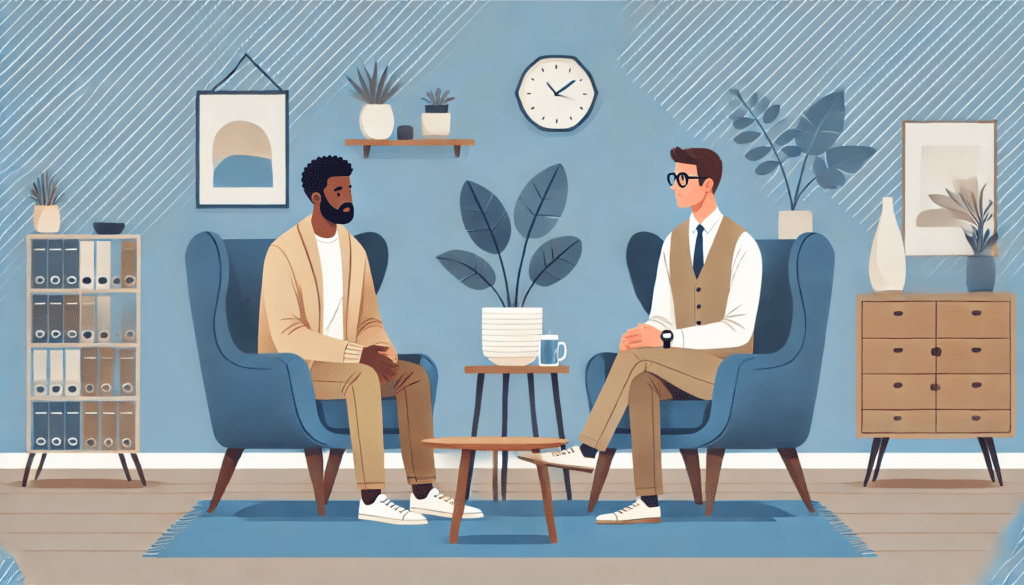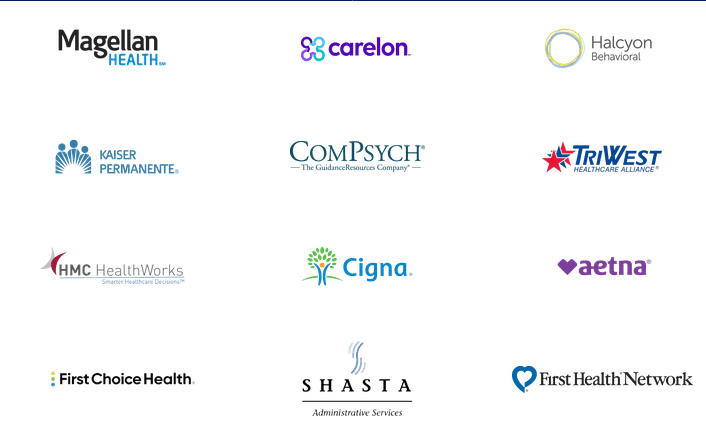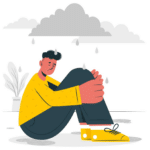Key Takeaways
- Major Depressive Disorder (MDD) is distinct from general depression, characterized by more intense and long-lasting symptoms that typically require clinical intervention.
- Symptoms of MDD include persistent sadness, changes in weight or sleep patterns, fatigue, and possible suicidal thoughts, demanding professional treatment.
- A variety of factors contribute to the onset of MDD, including biological imbalances, genetic predispositions, environmental stressors, and psychological conditions.
- Effective treatment for MDD and general depression may involve psychotherapy, medication, lifestyle adjustments, and support groups to manage symptoms.
- A Mission for Michael provides comprehensive treatment customized for individual needs, combiningf traditional and holistic methods, across multiple locations.
Understanding Major Depressive Disorder and General Depression
Depression encompasses a range of mental health conditions, including Major Depressive Disorder (MDD), yet it’s crucial to understand the distinctions between them. Major Depressive Disorder, also known as clinical depression, is a significant mental health issue that influences how individuals feel, think, and handle daily activities such as sleeping, eating, and working.
To be diagnosed with MDD, symptoms must be present for at least two weeks and indicate a change from previous functioning levels. This condition is marked by a persistent feeling of sadness or a lack of interest in external stimuli, leading to substantial impairments in both emotional and physical well-being and reducing a person’s ability to function effectively at work and at home.
In contrast, the term ‘general depression’ refers to a broader category that includes various depressive states, potentially less severe, and can involve feelings of sadness, hopelessness, and a loss of interest in activities that may be temporary or persistent but not necessarily meet the diagnostic criteria for MDD.
Both conditions share symptoms such as persistent sadness, feelings of hopelessness, irritability, loss of interest in hobbies, and fatigue. However, what often differentiates MDD from general depression is the severity and duration of these symptoms: MDD presents with more intense and long-lasting symptoms that typically require clinical intervention for management and improvement.
Founded in 2010, A Mission For Michael (AMFM) offers specialized mental health care across California, Minnesota, and Virginia. Our accredited facilities provide residential and outpatient programs, utilizing evidence-based therapies such as CBT, DBT, and EMDR.
Our dedicated team of licensed professionals ensures every client receives the best care possible, supported by accreditation from The Joint Commission. We are committed to safety and personalized treatment plans.
Symptoms and Diagnostic Criteria
Major Depressive Disorder Symptoms
| Symptom | Description |
| Depressed Mood | Feeling sad or low most of the day, nearly every day. |
| Loss of Interest or Pleasure | A marked decrease in interest or pleasure in all or almost all activities. |
| Weight Changes | Significant weight loss when not dieting or weight gain, typically changing more than 5% of body weight in a month. |
| Sleep Disturbances | Experiencing insomnia (difficulty sleeping) or hypersomnia (excessive sleeping). |
| Psychomotor Changes | Noticeable agitation or physical slowing down. |
| Fatigue | Persistent tiredness or loss of energy almost every day. |
| Feelings of Worthlessness or Excessive Guilt | Often feeling worthless or excessively guilty about things that would not normally cause such feelings. |
| Concentration Issues | A diminished ability to think, concentrate, or make decisions. |
| Suicidal Thoughts | Recurrent thoughts of death, suicidal ideation without a specific plan, or a suicide attempt or specific plan for committing suicide. |
Causes and Risk Factors

Financial stress and life challenges can contribute to the risk of major depressive disorder.
Biological and Genetic Factors
Biology significantly influences the development of Major Depressive Disorder (MDD). Neurotransmitters, the brain chemicals responsible for mood regulation, can become imbalanced, contributing to the onset of depression. Genetics also play a role in susceptibility to MDD – if you have a family history of depression, you might be at a higher risk of developing the disorder yourself.
Environmental Influences
Our environment greatly impacts our mental health. Stressful life events, such as the loss of a loved one, financial difficulties, or relationship problems, can trigger depression. Prolonged exposure to stressors, like living in a high-stress environment or experiencing ongoing abuse, can increase the likelihood of developing depressive symptoms as well.
Psychological Triggers
Psychological factors, such as personality traits and coping mechanisms, can also contribute to depression. Individuals with low self-esteem, who are overly dependent, or who are generally pessimistic may be more prone to depression. Past traumatic experiences, such as childhood abuse or neglect, can leave lasting psychological scars that increase the risk of depression later in life.
Treatment Approaches for Managing MDD and General Depression
| Treatment Approach | Description |
| Psychotherapy | Engaging in therapies such as cognitive behavioral therapy (CBT) or interpersonal therapy (IPT) can address the underlying psychological triggers and help develop healthier thinking patterns. |
| Medications | Using antidepressants to help correct chemical imbalances affecting mood. |
| Lifestyle Changes | Incorporating regular exercise, a healthy diet, and sufficient sleep can significantly improve symptoms. |
| Support Groups | Participating in group therapy or support groups to share experiences and coping strategies. |
Impact on Daily Life
Depression, including both Major Depressive Disorder (MDD) and general depression, significantly impacts daily life, affecting personal relationships, work performance, and overall quality of life. Recognizing these effects is crucial for seeking help and finding effective treatment solutions that can improve daily functioning and enhance one’s ability to enjoy life.
Effects on Everyday Activities and Relationships
Those with MDD may find even simple tasks like getting out of bed or eating breakfast incredibly challenging, often due to overwhelming fatigue and a lack of motivation, which can lead to neglect of personal responsibilities and self-care. Relationships may also suffer as individuals with depression might withdraw from social interactions, leading to feelings of isolation.
School and Work Challenges
In academic and professional settings, depression has been found to often lead to difficulties with concentration, memory issues, and decreased productivity. Students may struggle with assignments and experience declining grades, while employees might find it hard to meet deadlines or maintain the quality of their work.
These challenges can further feed feelings of inadequacy and stress, perpetuating a vicious cycle. Seeking accommodations, such as flexible deadlines or reduced workloads, and utilizing mental health resources are essential steps to manage these difficulties.
The Role of Support Systems
Friends, family, and mental health professionals play critical roles in providing the necessary encouragement and assistance during tough times. Joining support groups, whether in person or online, fosters community and understanding, which are invaluable for those dealing with depression.
Seeking help is a sign of strength, not weakness. Reaching out for support is essential and can provide the emotional backing needed to address and overcome the challenges of depression.
Why Choose A Mission for Michael for Your Major Depressive Disorder Treatment?

Our evidence-based treatments and compassionate care make us a trusted choice for managing depression.
At A Mission for Michael, we provide comprehensive and integrated treatment for MDD and general depression. Our facilities are located across California, Minnesota, and Virginia, offering accessible care customized for individual needs through a blend of traditional and holistic treatment methods. Starting with a free, thorough assessment of depressive symptoms, we personalize treatment plans to address each aspect of an individual’s condition.
Depression Therapy, Counseling, and Treatment Options
- We cater to a variety of mental health disorders, including dual-diagnosis conditions, ensuring that treatment addresses all underlying issues concurrently with depression.
- Our approach combines medication management, psychotherapy, and holistic therapies developed to treat the whole person, not just the symptoms.
Specialized Programs and Care
- Recognizing that depression affects each person differently, we provide specialized programs for different types of depressive disorders, ensuring relevant and effective treatment.
- From individual therapy to group support and advanced therapeutic modalities, our programs foster recovery and improve quality of life.
Supportive Environment and Professional Staff

A welcoming environment with professional staff ensures effective care for recovery.
- Our treatment centers are staffed by multidisciplinary teams of experienced professionals who provide continuous support and comprehensive care.
- We offer a supportive, stigma-free environment where individuals can focus on recovery without judgment.
Accessibility and Insurance Compatibility

We work with major insurance providers to make treatment more accessible for everyone.
- Recognizing the financial concerns associated with treatment, we verify insurance coverage and discuss potential costs upfront, helping patients manage the financial aspect of their care.
- Our admissions process is streamlined to ensure that help is available when needed, including same-day admissions if necessary.
Frequently Asked Questions (FAQ)
What is the difference between Major Depressive Disorder (MDD) and general depression?
Major Depressive Disorder (MDD) is a mental health condition marked by persistent sadness and disinterest, impairing emotional and physical well-being, with symptoms lasting at least two weeks. In contrast, general depression includes less severe depressive states that do not necessarily meet MDD criteria.
What are the common symptoms of MDD?
Common symptoms of MDD include persistent low mood, loss of interest in activities, significant weight changes, sleep issues, psychomotor agitation or retardation, fatigue, feelings of worthlessness or guilt, difficulty concentrating, and thoughts of death or suicide.
What causes MDD?
MDD arises from a mix of biological, genetic, environmental, and psychological factors, including neurotransmitter imbalances, genetic predispositions, stressful life events, and psychological traits like low self-esteem or pessimism.
What are the treatment options for MDD and general depression?
Options include psychotherapy (such as CBT and IPT), antidepressants, lifestyle adjustments (regular exercise and a healthy diet), and support groups or group therapy.
Why choose A Mission for Michael for your MDD treatment?
A Mission for Michael features a comprehensive and integrated approach to treating both MDD and general depression. Our treatment plans are personalized, combining traditional and holistic methods to meet individual needs. All of our programs are based on scientific evidence and focus on the needs of our patients.













